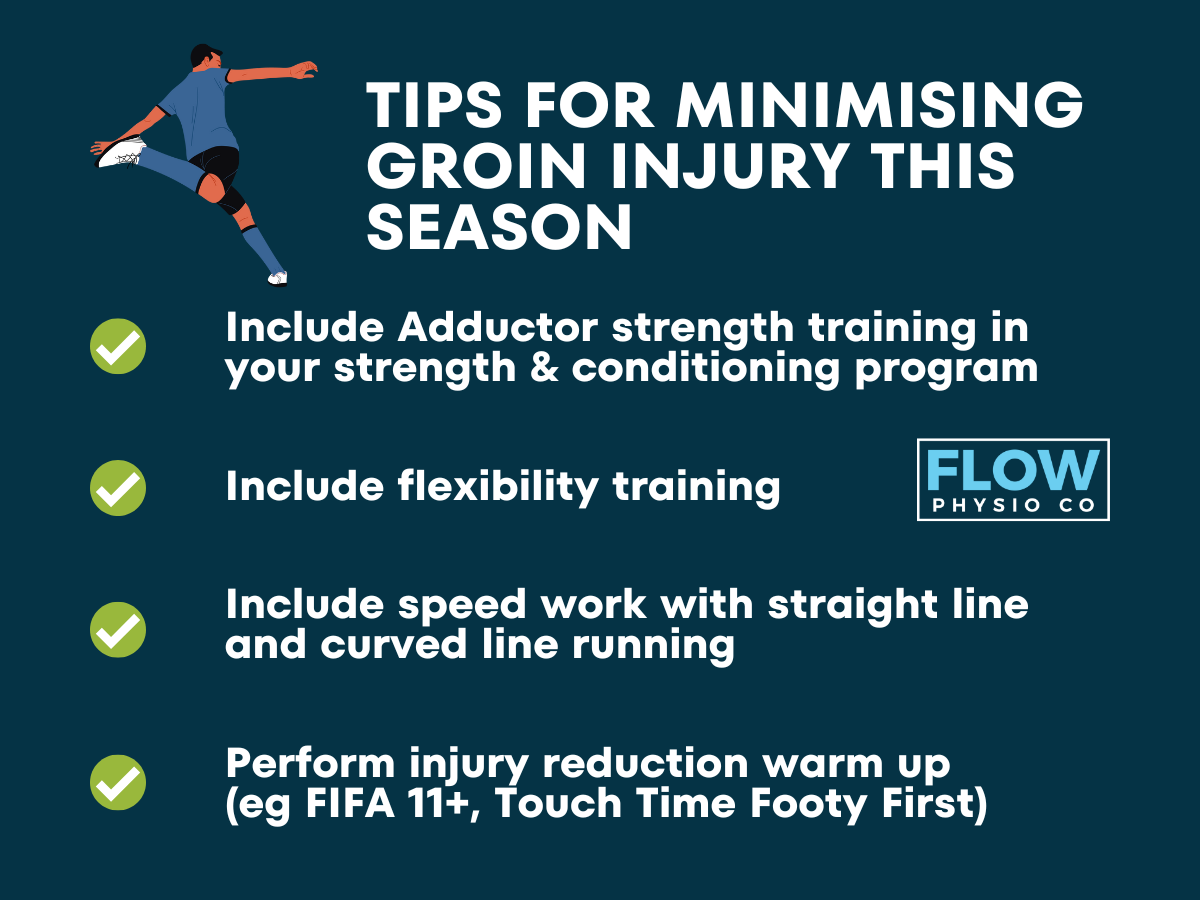As football season approaches, it's important to take steps to prevent groin injuries. Groin injuries are common in sports that involve running, jumping, and quick direction changes. These types of movements can put a lot of strain on the adductor muscles, which run along the inner thigh and are responsible for moving the leg toward the midline of the body.
Here are 4 tips to help minimise groin injury this season:
Include adductor strengthening in your strength and conditioning program.
Reduced hip adductor strength is associated with an increased risk of groin injury in sport (Whitaker et al 2015). Therefore, it's important to incorporate exercises that target the adductor muscles into your strength and conditioning program. Examples of exercises that can strengthen the adductors include side-lying leg lifts, standing hip adduction with resistance bands, and adductor machine exercises.
2. Include some flexibility training targeted to the adductors or groin muscles.
Stretching is an important component of injury prevention. Including flexibility training that targets the adductors or groin muscles can help reduce the risk of injury. Examples of stretches that can help improve flexibility in the adductors include the butterfly stretch and the standing adductor stretch.
3. Include speed work with straight and curved line elements.
Gradually exposing the body to high-speed running that will be required in-season can help reduce the risk of groin injury. Incorporating speed work with straight and curved line elements into your training program can help improve your body's ability to handle these movements.
4. Perform an injury reduction warm-up program like the FIFA 11+, Touch Time, Footy First.
Warm-up programs that are specifically designed to reduce the risk of injury can be highly effective. The FIFA 11+ program, for example, is an injury reduction program that incorporates specific strengthening, motor control, and jumping/landing exercises into a structured warm-up session 2-3x weekly. The FIFA 11+ has been shown to reduce football injuries in recreational/subelite football by 39% (Harøy et al 2019). It was also shown to reduce hamstring, hip/groin, knee, and ankle injuries (60%, 41%, 48%, and 32% respectively). A meta-analysis (a statistical procedure for combining data from multiple studies) showed that injury reduction programs (like FIFA11+), can not only decrease ACL injury up to 50%, but all knee injuries by 30% (Thorborg et al 2017).
It's important to note that injury prevention/reduction is more nuanced than just completing a specific warm-up. However, incorporating the FIFA 11+ warm-up program can provide a valuable tool to help guide future directions in minimising the burden of injury in the football population.
In conclusion, preventing groin injuries requires a comprehensive approach that includes strengthening, flexibility, and speed work, as well as incorporating an injury reduction warm-up program. At our physiotherapy clinic, we can help develop a personalised injury prevention program that is tailored to your specific needs and goals. Contact us today to learn more about how we can help you stay injury-free this season.


